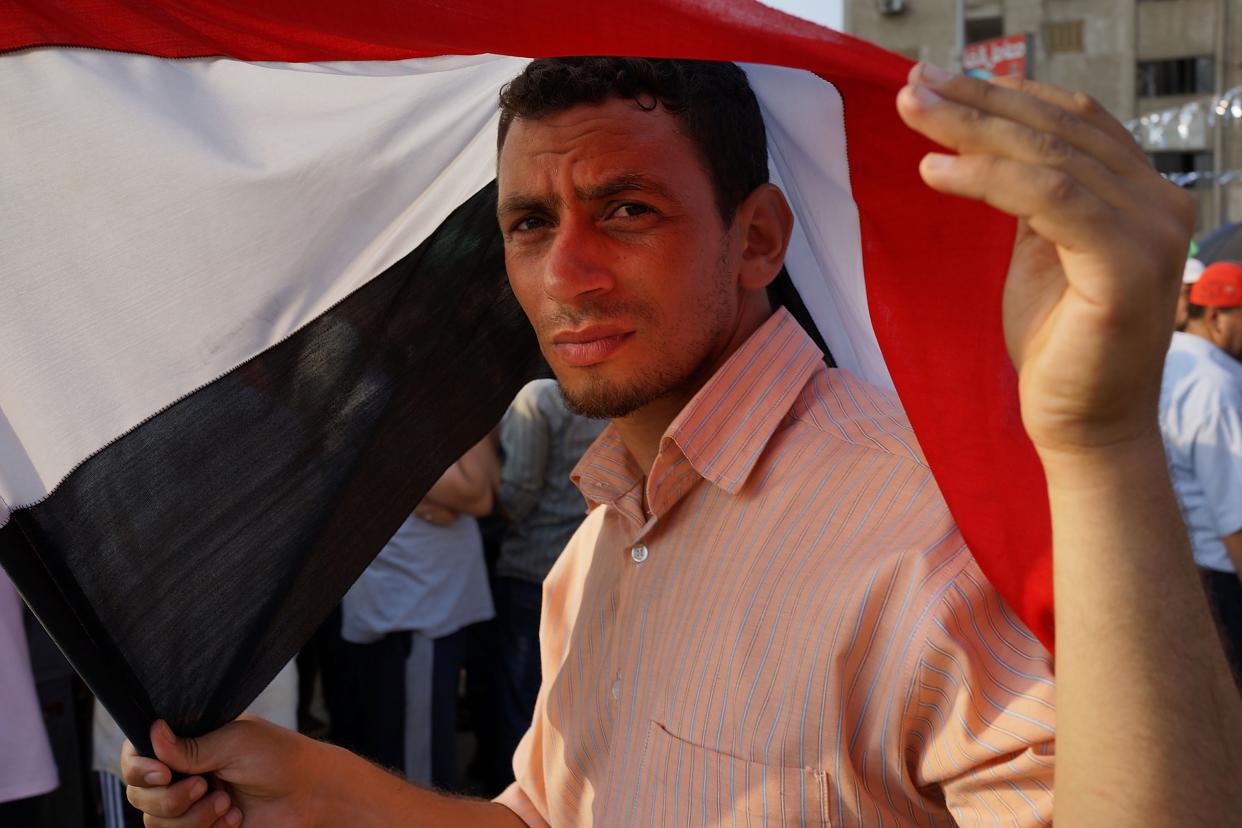 David vs. David
David vs. DavidCrisis in Egypt: It’s impossible to expect peace through the military’s violent means

The Arab Spring, which began in Tunisia in Dec. 2010, appeared for a period to be operating on a preset democratization schedule across the Middle East and North Africa. Hosni Mubarak, having held absolute power by imposing martial law on Egyptians without interruption for thirty years, was ousted in early 2013 by vast crowds of “people power” in the streets of Cairo and across the country.
The primary causes of the uprisings in Egypt, Bahrain, Libya, Syria, Yemen and elsewhere were similar: long-term misgovernance by privileged elites — including a lack of democracy and universal values — oppression and chronic corruption. Mubarak, who has recently been released from a life sentence in prison by a Cairo court, is believed by some observers to have acquired a fortune of $70 billion.
The income of the average Egyptian is about twelve per cent that of Canadians; about 40 per cent of them live on less than two dollars a day. Approximately a third of the population is both unemployed and illiterate. The hundreds of thousands of ordinary citizens in Tahir Square in early 2011 seemed united in their aspirations for dignified lives without Mubarak or any other despot.
The 2013 book Why Nations Fail by Messrs. Acemoglu and Robinson, quotes Mohamed El Baradei (who recently resigned from the 6-week-old generals-created interim government) on Twitter not long before Mubarak’s removal: “Tunisia: repression + absence of social justice+ denials of channels for peaceful change = ticking time bomb.” Another protestor in Tahir Square in 2011, Reda Metwaly, added, “Now you see Muslims and Christians together, now you see old and young together, all wanting the same thing.”
Tragically, two years later, even a partial list of the disasters created by Muhammad Morsi, as Egypt’s first ever elected president, includes ignoring virtually every democratic governance norm. Packing a constitutional committee with Islamists, forcing an election and other laws through without general consent, allowing hatred of the country’s eight million or so Christians and Muslim minorities to grow, gross mismanagement of the economy — all these and other efforts to impose fundamentalist Islam on Egyptians quickly destroyed Morsi’s standing among ordinary citizens. He seemed to many to have morphed into something little different from other dictators still governing in the region.
Nina Shea, director of the Hudson Institute’s Center for Religious Freedom in Washington, wrote recently:
Violent aggression by Egypt’s Muslim Brotherhood and other Islamists, including those sympathetic to al-Qaeda, continues to be directed at one of the world’s oldest Christian communities, following the military’s break up last week of Brotherhood sit-ins. The Brotherhood’s Freedom and Justice Party has been inciting the anti-Christian pogroms on its web and Facebook pages. One … lists a bill of particulars against the Christian Coptic minority, blaming it, and only it, for the military’s crackdown against the Brotherhood, and alleging that the Church has declared a ‘war against Islam and Muslims.’
At least 58 churches, several convents, monasteries and schools, the YMCA, dozens of homes and businesses of Christians are reported to have been looted or burned to date. The Coptic Pope is in hiding. A scholar on Egypt, Samuel Tadros, noted that the recent attacks appear to be the worst day of violence against Egypt’s Coptic Church since the 14th century. The tactic rightly appears to have appalled most Muslims across Canada and around the world.
[ Sammy Yatim: Shoot first, ask questions later isn't acceptable ]
President Barack Obama referred to such problems when he noted after the coup, “(Morsi’s) government was not inclusive and did not respect the views of all Egyptians.” The only concrete American sanction since, however, has been a delay in delivery of four F-16 fighter jets. The word “coup” has been avoided in Washington and U.S. Secretary of State John Kerry said a month after it occurred that the army was “restoring democracy.” Another small nod towards democracy was for Obama to cancel a biennial joint military exercise. The world knows that the tyrannical Mubarak received continuous financial, diplomatic and other support from successive U.S administrations over three decades.
To be sure, the six-week record of the generals’ government is equally appalling. It kidnapped the elected president. It has detained Muslim Brotherhood leader Mohamed Badie. Its military commander, General Abdel Fattah el-Sisi, claiming that the members of the Muslim Brotherhood were terrorists, initiated the brutal killing of about 700 men and women protesting the coup and the injuring of almost four thousand more.
No-one asserts that democratizing Egypt is going to be easy for its people, given the absence of it there during the post-World War One decades when representative democracy became the governance model in parts of the world. Its current levels of poverty, unemployment and illiteracy do not make things easier. Even the generals must realize, however, that violence creates only more violence. More of it must be avoided at all costs.
David Kilgour is co-chair of the Canadian Friends of a Democratic Iran and a director of the Washington-based Council for a Community of Democracies (CCD). He is a former MP for both the Conservative and Liberal Parties in the south-east region of Edmonton and has also served as the Secretary of State for Latin America and Africa, Secretary of State for Asia-Pacific and Deputy Speaker of the House.

